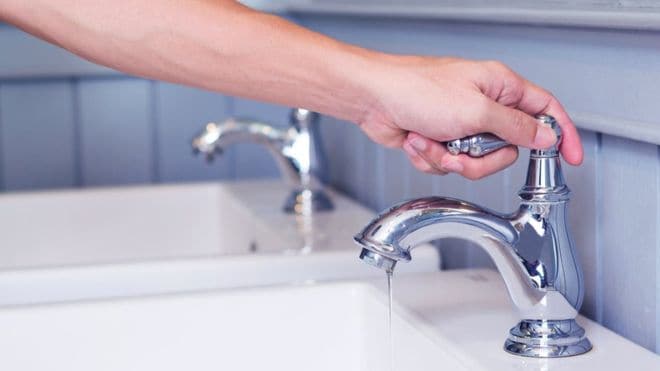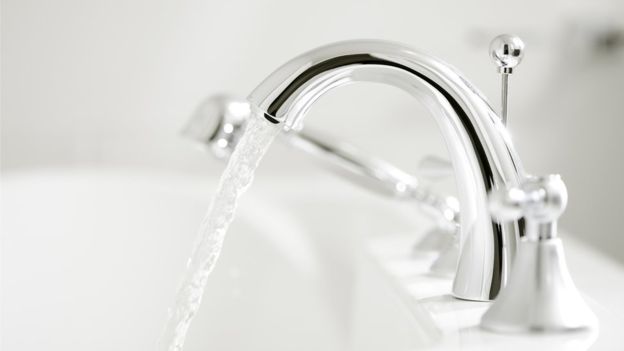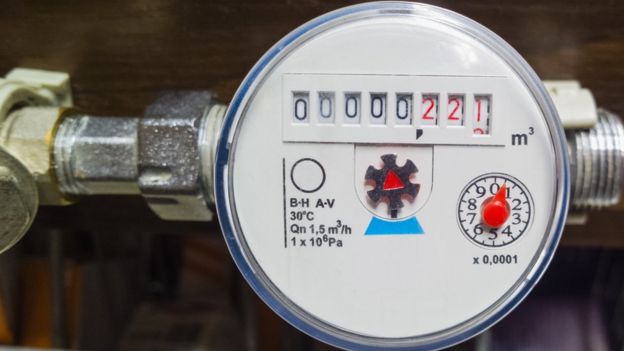
Millions of householders in England and Wales could be forced to have water meters installed if a group of MPs gets its way.
Members of the Environment, Food and Rural Affairs Committee (EFRA) say that all water companies should be allowed to introduce compulsory metering.
They say that the idea is to help save water.
But the MPs concede that in some cases putting in a meter might lead to “significant” increases in bills.
At the moment about half of homes in England have meters but in most areas installation is still voluntary.
Water companies only have the power to force households to install meters in parts of the country subject to water shortages, such as the South East.
“We call on the Department for the Environment, Food and Rural Affairs (Defra) to allow all water companies the power to implement compulsory metering,” said MP Neil Parish, chair of the committee.
“Where this might lead to significant bill increases, metering should be accompanied by strengthened support for vulnerable customers.”
Water leakage
The idea of compulsory metering is controversial, even within the industry itself.
Mel Karam, chief executive of Bristol Water, told MPs that it could have a negative impact on people and may backfire.

The Consumer Council for Water said that ideally customers should have a choice.
However, it supported the compulsory installation of meters if it was handled sensitively and introduced over a long period of time.
Tony Smith, chief executive of the Consumer Council for Water, said: “Some customers may see a large rise in their bill, and it’s critical support is put in place to financially assist those at risk of being worse off, particularly larger families and those on a low income.”
Water meters help reduce demand and make it easier for companies to detect leaks.
At the moment three billion litres are lost every day, enough to fill over 1,000 Olympic-sized swimming pools.
But while leakage has been reduced significantly, the MPs said more needed to be done.
Will I pay more with a meter?

Householders who do not have meters currently pay a flat fee, according to the rateable value of their home. Those with meters pay according to how much water they actually use.
So those with low rateable values, and large families, face the biggest increase in bills.
The Consumer Council for Water advises that if you have more bedrooms than people living in your property, you are likely to be better off with a meter.
You can use this calculator to work out whether you would be better or worse off.
Those who live outside the areas where compulsory metering is already in operation have two years to decide whether they like having a meter. If not, they are free to switch back.
The water industry itself also urged caution about compulsory metering.
“Continued roll out of metering is an important tool for managing demand, but how and when it is done needs to be handled carefully as part of a wider approach reflecting the needs of different customers,” said Water UK chief executive Michael Roberts.
Southern Water, which serves Kent and Sussex, has already made meters compulsory. It told the MPs that it had cut consumption by 16.5% as a result.
The National Infrastructure Commission, which advises the government on major projects, has said that water meters should be compulsory from the 2030s.
Water meters are not compulsory anywhere in Scotland, where households pay their bills via local authorities.
The following companies can already force consumers to have water meters put in, although they have not all made use of their powers: Affinity Water (north west London and Home Counties); Anglian Water; Essex and Suffolk Water; South East Water; Southern Water; Sutton and East Surrey Water; and Thames Water.


